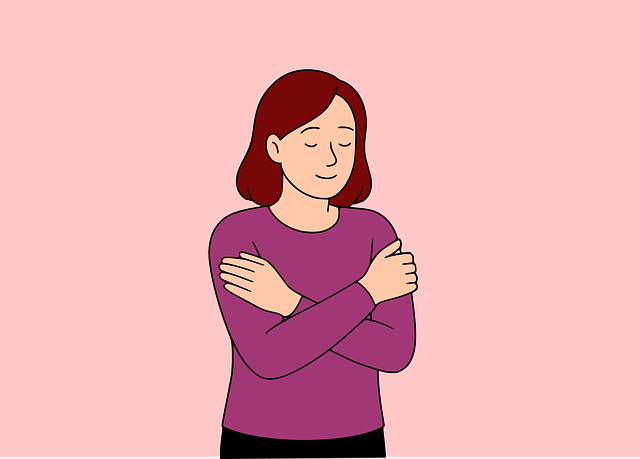Community outreach programs in Littleton, focusing on mental wellness, play a crucial role in addressing conduct disorder among youth by providing specialized therapy services to hard-to-reach communities. These initiatives identify high-risk areas and tailor interventions based on age, gender, cultural context, and risk factors, integrating evidence-based practices like Stress Reduction Methods and Cultural Sensitivity for improved outcomes. Through workshops, discussions, and education, these programs foster a supportive environment, alleviate stigma, offer early intervention, and empower participants with resilience and coping mechanisms for long-term mental wellness, as measured by engagement, attitudes, and behavior improvements. Littleton Conduct Disorder Therapy, combined with continuous evaluation and refinement, significantly impacts resident well-being.
In Littleton, addressing conduct disorder through community outreach programs is a multifaceted approach aiming to improve mental health services. This article delves into the strategic implementation of these programs, focusing on Littleton Conduct Disorder Therapy. We explore key aspects such as identifying target communities and their unique needs, designing engaging and evidence-based program strategies, and evaluating outcomes for lasting impact. By implementing these steps effectively, Littleton can foster a healthier, more supportive environment for those struggling with conduct disorders.
- Understanding Community Outreach Programs for Littleton Conduct Disorder Therapy
- Identifying Target Communities and Needs for Effective Outreach
- Developing Engaging and Evidence-Based Program Strategies
- Implementing and Evaluating Outreach Programs for Lasting Impact in Littleton
Understanding Community Outreach Programs for Littleton Conduct Disorder Therapy

Community outreach programs play a pivotal role in addressing and treating issues like conduct disorder among youth in Littleton. These initiatives aim to bridge the gap between specialized therapy services and hard-to-reach communities, ensuring that young individuals struggling with mental health challenges receive the necessary support. By implementing tailored programs, such as self-awareness exercises and mental wellness coaching, outreach workers can foster a sense of belonging and reduce the stigma surrounding mental illness.
Litttleton Conduct Disorder Therapy benefits greatly from community-based approaches that focus on early intervention and prevention. Through partnerships with local schools, community centers, and faith-based organizations, these programs can reach youth where they are most active and engaged. By integrating evidence-based practices and Mental Illness Stigma Reduction Efforts, outreach programs not only address immediate concerns but also lay the foundation for long-term mental wellness coaching programs development.
Identifying Target Communities and Needs for Effective Outreach

Identifying target communities is a pivotal step in designing effective outreach programs, especially when addressing mental health concerns like Littleton Conduct Disorder Therapy. Successful outreach requires understanding the unique needs and challenges of each community. This process involves thorough research to pinpoint areas with high conduct disorder prevalence or communities lacking access to specialized therapy services. By engaging with local leaders, healthcare providers, and community members, organizations can gain insights into cultural sensitivities, existing support systems, and specific barriers to treatment.
For instance, when implementing Littleton Conduct Disorder Therapy programs, it’s essential to consider the age groups and genders most affected within the target communities. Additionally, Mental Health Education Programs Design should be tailored to address risk factors and promote Emotional Regulation techniques suited to the cultural context. This community-centric approach ensures that resources are allocated efficiently, fostering trust and engagement in efforts towards improving mental health outcomes for all.
Developing Engaging and Evidence-Based Program Strategies

Developing effective community outreach programs requires a strategic approach that combines engaging activities with evidence-based practices. For instance, programs aimed at addressing issues like Littleton Conduct Disorder Therapy should integrate both traditional and innovative techniques. Start by understanding the specific needs of the target community, as different populations may benefit from unique interventions. Incorporate interactive workshops, group discussions, and educational sessions to foster engagement and promote positive behavior changes.
Implementing evidence-based strategies such as Stress Reduction Methods and Cultural Sensitivity in Mental Healthcare Practice can significantly enhance program outcomes. These approaches recognize the impact of cultural backgrounds on mental health and tailor services accordingly. Moreover, incorporating Mind Over Matter Principles encourages participants to develop resilience and coping mechanisms that go beyond external interventions. By combining these elements, community outreach programs become more impactful, ensuring long-lasting benefits for individuals and the collective well-being of the served communities.
Implementing and Evaluating Outreach Programs for Lasting Impact in Littleton

Implementing community outreach programs in Littleton, focusing on mental wellness and behavior therapy, can significantly impact the well-being of its residents, particularly those struggling with conduct disorders. These initiatives aim to foster a supportive environment where individuals receive the necessary resources for long-term improvement. By integrating various activities such as group discussions, educational workshops, and interactive sessions, the programs address specific challenges like Littleton Conduct Disorder Therapy, depression prevention, and promoting positive thinking.
Evaluating the success of these outreach efforts is crucial for ensuring their sustainability. Measuring participant engagement, attitudes, and behaviors before and after the program can provide valuable insights. For instance, tracking improvements in mental wellness through regular surveys or interviews will highlight the effectiveness of the initiatives. Additionally, gathering feedback from both participants and community leaders helps identify areas for improvement, allowing for continuous refinement and enhanced production of the Mental Wellness Podcast Series, which can further propagate positive messages throughout the Littleton community.
Community outreach programs play a pivotal role in providing effective therapy, such as Littleton Conduct Disorder Therapy, by reaching at-risk individuals and communities. By understanding local needs, developing engaging strategies grounded in evidence, and implementing these programs with careful evaluation, we can achieve lasting positive impacts. This holistic approach ensures that resources are directed towards where they’re most needed, fostering healthier and more connected communities in Littleton and beyond.










